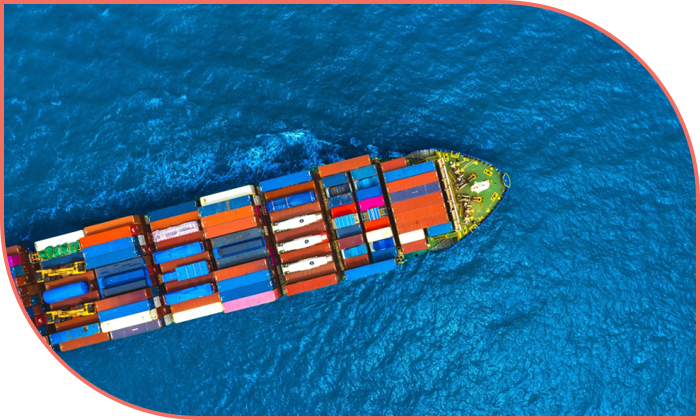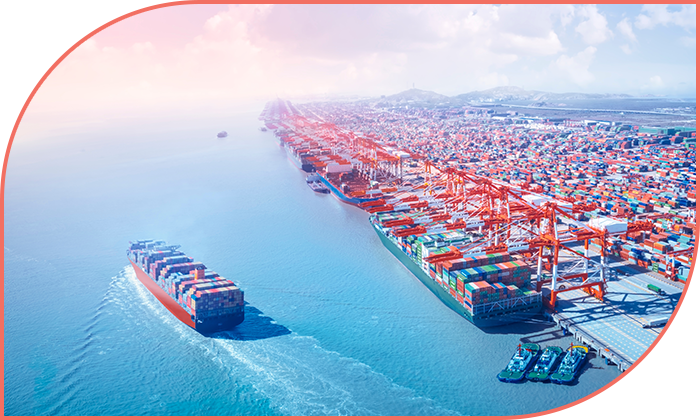Carriage and Insurance Paid To (CIP) Incoterm
What is Carriage and Insurance Paid To?
Carriage and Insurance Paid To (CIP) is an Incoterm defined by the International Chamber of Commerce (ICC) that specifies that the seller is responsible for arranging and paying for the carriage and insurance of goods until they are passed on to the first shipping company assigned to the package's delivery. After this delivery occurs, all liability belongs to the customer.
How CIP Shipping Works
Sales Contract Agreement
The buyer and seller agree on a sales contract that specifies the use of the CIP Incoterm, including the named destination where the goods will be delivered.
Preparation of Goods
The seller prepares the goods for shipment, ensuring they are properly packed and labelled according to the buyer's specifications and the mode of transport.
Export Clearance
The seller is responsible for clearing the goods for export with CIP shipping. This includes obtaining any necessary export licenses, completing customs documentation, and paying any export duties or taxes.


Arranging Transportation
The CIP delivery term sees the seller arrange for the transportation of the goods from their location to the named destination. This involves contracting with a carrier and paying for the transport costs. The seller provides the carrier with the necessary shipping documents.
Obtaining Insurance
The seller must obtain insurance to cover the goods during transit. The insurance must be for a minimum coverage of 110% of the contract value and must cover the risk of loss or damage during the carriage.
The insurance policy should be in the buyer’s favour, meaning that any claims would be payable to the buyer.
Delivery to Carrier
The seller delivers the goods to the first carrier at the agreed place with CIP shipping. At this point, the risk of loss or damage transfers from the seller to the buyer, even though the seller still pays for the transportation and insurance to the final destination.
Transport to Destination
The carrier transports the goods to the named destination. During this transit period of Carriage and Insurance Paid To, the seller remains responsible for the transportation costs and insurance, but the buyer bears the risk of loss or damage.
Import Clearance
Once the goods arrive at the destination, the buyer is responsible for clearing the goods through import customs. This includes obtaining any necessary import licenses, completing customs documentation, and paying any import duties or taxes.
Receiving Goods
The buyer receives the goods at the named destination. The buyer is now fully responsible for the goods, including any further transportation to their final destination, if the named place is not the buyer's premises.

The Best Rate For Your Freight
Access real-time quotes from leading freight providers. Choose the best ocean and air shipping option for your business.
Seller Obligations with CIP Delivery Term
- Items, business invoices, and supporting records
- Packing and labelling for exports
- Export authorisation and customs procedures
- Pre-carriage and delivery
- Loading fees
- The price of delivery to the specified location
- Evidence of delivery
- Pre-shipment inspection costs
- Insurance coverage against all risks
Buyer Obligations with CIP Delivery Term
- Payment for products as indicated in the sales contract
- Customs procedures and levies
- Cost of pre-shipment inspection for import clearance
Benefits of CIP Shipping for the Seller
Control Over Shipping and Insurance Arrangements
The seller maintains control over the selection of carriers and insurance providers, which can help ensure that reliable and trusted partners are used.
Simplified Process
By arranging and paying for the carriage and insurance, the seller can streamline the logistics process of the CIP Incoterm, making it easier to manage and ensuring that goods are shipped in a timely and efficient manner.
Competitive Advantage
Offering CIP terms can make a seller's offer more attractive to buyers, as it reduces the buyer's burden of arranging shipping and insurance. This can be a competitive advantage in markets where buyers prefer a more hands-off approach to logistics.
Market Expansion
By handling logistics and insurance, sellers can expand their market reach to buyers who may not have the expertise or resources to manage international shipping themselves.

Benefits of CIP Shipping for the Buyer

Reduced Responsibility
The buyer benefits from reduced responsibility for arranging and managing international shipping and insurance, simplifying the procurement process.
Cost Certainty
Carriage and Insurance Paid To provide the buyer with a clear understanding of the total cost of transportation and insurance up to the named destination, helping in better budget planning and financial forecasting.
Easier Import Process
The buyer can focus on the import customs clearance process and take delivery of the goods to the named destination without worrying about the complexities of international logistics.
Shipping Made Simple: Compare Quotes Now
Quickly compare ocean and air freight quotes from multiple carriers. Get the most competitive price for your shipment.
Drawbacks of CIP Incoterm for the Seller
Risk of Damage or Loss Until Delivery to Carrier
The seller bears the risk of damage or loss until the goods are delivered to the first carrier with CIP shipping. If issues arise during this phase, the seller is responsible for resolving them.
Insurance Management
The seller must manage and pay for the insurance, which includes ensuring that the coverage meets the minimum requirements and any additional coverage agreed upon with the buyer.
Cost Implications
With the CIP delivery term, the seller bears the costs of carriage and insurance up to the named destination. If these costs are not accurately estimated, they could impact the seller’s profitability.

Drawbacks of CIP Incoterm for the Buyer

Limited Control over Shipping and Insurance
The buyer has limited control over the choice of carrier and the specifics of the insurance policy. This could lead to dissatisfaction if the buyer prefers certain carriers or higher levels of insurance coverage.
Risk Transfer at Carrier Delivery
The risk of loss or damage to the goods transfers to the buyer once the goods are delivered to the first carrier with CIP Shipping. If issues occur after this point, the buyer must deal with the insurance company to resolve claims.
Potential for Insufficient Insurance
The seller is only required to provide minimum insurance coverage with a CIP delivery term. If the buyer needs more comprehensive coverage, they must either negotiate it with the seller or arrange additional insurance themselves, potentially leading to extra costs.
Import Responsibilities
The buyer is responsible for import customs clearance and any associated duties and taxes. This can be challenging and requires significant knowledge of local import regulations and procedures.
CIP Frequently Asked Questions
What does CIP stand for?
CIP stands for Carriage and Insurance Paid To. It is an Incoterm used in international trade that defines the responsibilities of the seller and buyer regarding transportation and insurance.
Who pays for the insurance under CIP?
Under CIP shipping, the seller is responsible for obtaining and paying for insurance coverage up to the named destination.
What level of insurance coverage is required under CIP?
Legally speaking, the seller must guarantee the products for 110% of the agreed-upon value. This is as stated in the Institute Cargo Clauses, Clause A.
How does CIP compare to CIF?
CIF (Cost, Insurance, and Freight) is similar to the CIP Incoterm but is used specifically for sea and inland waterway transport. The key difference is the point of risk transfer, which occurs at the port of shipment in CIF, whereas, in CIP, it occurs at the point of delivery to the first carrier.
Find The Lowest Freight Rates Today
Compare shipping quotes from trusted providers. Get the best deals for ocean or air freight.